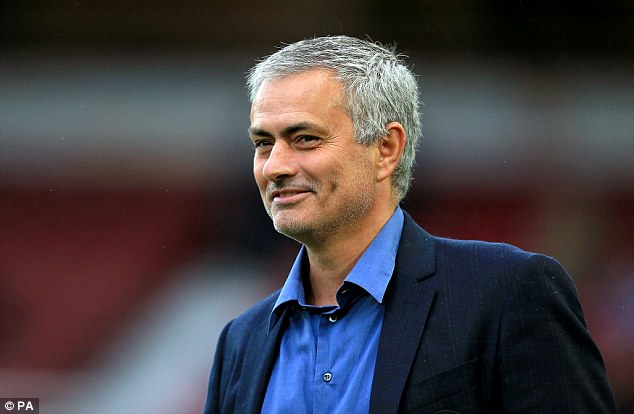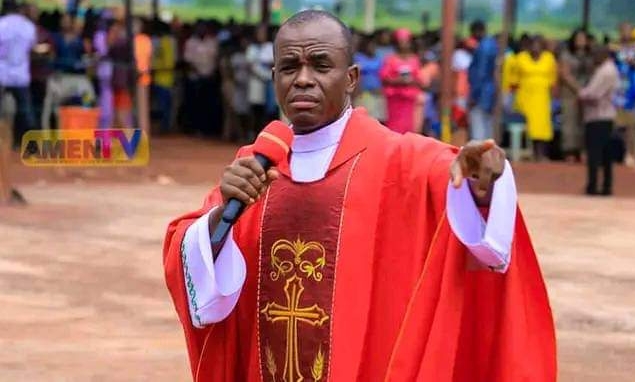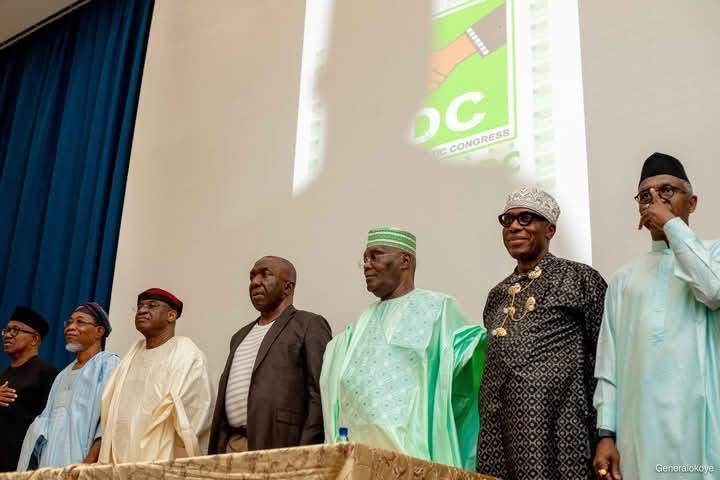Let’s Embrace Jose Mourinho’s Strategy
BY RAYMOND OISE-OGHAEDE

A lot of people will be extremely curious to know what informed my choice of topic and its objectives considering the fact that the personality in question is synonymous with football management while my past articles revolve around political and public policy issues. In as much as they are right to a larger extent, I picked the topic because, football is popular game that has a captivating influence on a good number of the populace, especially the youths who formed majority of the electorates.
The aim of this review is not to delve into the privacy of Jose Mourinho or to belabor ourselves about his numerous achievements as a football coach but, to carefully consider the special skills he exhibited in some of the strategic decisions he took lately under very difficult and demanding situations. Therefore, I would crave the indulgence of readers to dislodge their minds of sentiments that could becloud their reasoning and judgments on the matter.
Generally, Football Clubs are established or founded for the purpose of participating or competing in organized championship(s) with the aims of doing well and ultimately emerging champions and winning the prize(s). Therefore, coaches are contracted to co-ordinate and manage the players in the best possible circumstances towards achieving the desired results. However, their performances are limited or constrained by some factors such as, congested fixtures of matches across various competitions; player’s injuries; rules guiding carded offences and players’ eligibility; release of players for international duties and; wherewithal of the club in the transfer windows to mention but a few.
From the aforementioned, one can be comfortably disposed to agreeing that the duties of a coach are very tasking and demanding and will require high level of intelligence, expertise and resources optimization to be able to make meaningful progress and achievements. As it is in football management and administration, so it is with governance of other organizations and nations.
Therefore, in every works of life, there are conflicting interests that require the dexterity of the people in authority to take far reaching decisions in the interests of the organizations and or the nation. In the case of Mourinho, he was appointed Manager of Manchester United at a time when the club was facing difficulties following the retirement of legendary Sir Alex Ferguson and after two other coaches had tried their best. Understandably, the expectations of the club’s management will be to remain highly competitive and one of the best clubs in the world. This can only be achieved by doing very well in local competitions and also participating in the Champions League.
The club set-out well in all competitions at the beginning of the season winning the Carling Cup and reached the quarter final of the FA Cup. At a stage, the quest for the Premier League Trophy waned and the club was left with going to the limits in the Europa League and or achieving the Top Four mark in the Premier League. At this point, the club was hit by some of the hindrances and hiccups in club football in the forms of congested fixtures; injuries to some key players and; ineligibility of some others due to consequences of carded offences. The coach was at a crossroad faced with the complexity and difficulty of managing the situations with the available but, limited resources and with his personal and club’s interests in conflict. Interestingly, he rose to the occasion as ‘the Special One’, by taking very professional and expertise decisions of upholding the overall interest of the club by taking the risk to guiding their quest for Europa glory jealously. At that point, the club was still mathematically capable of leapfrogging from sixth to third or fourth position with their rescheduled and outstanding matches but, that will be at a damaging cost considering their precarious situation. In an interview, he made it clear that the situation will affect his selections for the remaining matches of the season. He said though, all the matches are important to the team, but some were more important than the others. The coach took the risk of pursuing the Europa League Cup to a logical conclusion rather than gunning for an ego-boosting and selfish top four position that will guarantee his job.
You will agree with me that if at the end of the day, success is achieved, it will add to the numerous trophies and laurels of the club. However, even in the event of the club not winning the Europa Cup, it will not rub-off the very commendable strategy and worthwhile risk of the coach; the unequivocal determinations and fighting spirit of the players and the unwavering support of fans and other staff.
The aforementioned portends the importance for people that are appointed or elected into positions of authority to always endeavour to put the overall interests of the organization and or the nation foremost in the discharge of their assigned responsibilities. In a heterogeneous society like ours, decision making are constrained by some factors (such as religion, tribalism, favoritism, destructive criticisms, corruption, nepotism and insecurity to mention but a few) which are capable of inhibiting the free flow of governance just like the hiccups in football management.
However, if our leaders will always embrace the path of truth and equity, it will go a long way to achieving the changes that are desired in the country. Our Sports Administrators should always make the best use of available limited resources at their disposal in their quest to doing very well and achieving set targets. Instead of sending about 200 shoddily prepared athletes to represent the country at the Olympic Games without winning a gold medal; such funds should be used to preparing a handful (say about 20) with the best standard facilities which will spur them to winning up to 10 gold medals.
Also, in the case of complex and conflicting interests, the authorities should be able to weigh available options and alternatives before adopting the ones that will be in the best interest of the nation as against any other vested interest. Mourinho further suggested that he could use players from the academy to execute his remaining local matches most especially that of Crystal Palace which will be played three days before the Europa League Final on May 24. However, he added that this will be dependent on whether that match will be a determinant of which clubs will go on relegation. Apparently, he had proactively read in between the lines to ensuring, that his club’s interest will not constitute unfair and prejudiced situation for any other club that could be affected by the outcome of the match.
Likewise, in governance, our leaders should always prioritize and consider the ultimate or far reaching effects of whatever decisions they need to take so that the principle of equity and fair play would be strictly adhered. For instance, where two states of the country require the intervention or support of the Federal government to execute a project, the government should render such assistance to the state whose project is of utmost importance and urgency rather than doing it for the other state based on partisan or parochial considerations.
Finally, our leaders should learn to desist from trading blames concerning the challenges facing the nation. It is normal in politics as well as in every human endeavours for preceding managers or administrators to hand over assets and liabilities to the succeeding ones. Therefore, the onus and responsibilities of building on the inherited positives while correcting or rectifying the negatives would be borne by the new person(s) in charge. If there are grey areas and challenges that needed clarifications or probing, such should be handled without creating bad blood and heating up the polity unnecessarily. Recalled that when Manchester United won the Community Shield, Mourinho dedicated it to his predecessor (Louis Van Gaal) who won the FA Cup in the previous session and making it possible for the club to qualify to play in that competition. To date, it is not on record that he criticized the performances of his predecessor. This is how it should be, even, in the governance of a nation. The earlier you accept your assets and liabilities and face the responsibilities and challenges squarely, the better it will be for you and everybody.
From the foregoing, you will agree with me that we can always explore the positives in every situation to better the lots of our nation.
Thanks.
Oise-Oghaede is a Political and Public Policy Analyst,
08099405562, 08023116867.
Surulere, Lagos.











